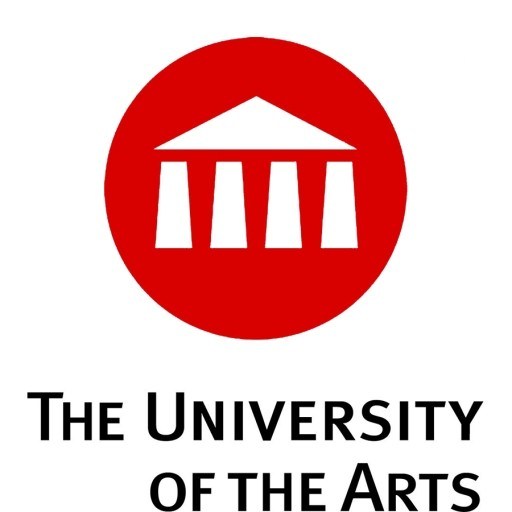Photos of university / #universityofthearts
Textile Design at the University of the Arts offers a comprehensive program that combines artistic creativity with technical expertise to prepare students for a dynamic career in the textile industry. This course explores various aspects of textile creation, including surface design, fabric development, and innovative textile applications, encouraging students to experiment with materials, techniques, and concepts. Throughout the program, students engage in hands-on projects that foster their individual artistic voice while developing a deep understanding of textile processes, sustainability practices, and industry standards. The curriculum emphasizes both traditional craft methods and cutting-edge digital technologies, enabling graduates to adapt to evolving market trends and technological advancements. Students have access to state-of-the-art facilities, including dye laboratories, weaving and printing workshops, and digital fabrication tools. The program also promotes interdisciplinary collaboration with other art and design disciplines, preparing students for diverse career paths such as textile designers, studio artists, fashion print specialists, and research professionals. With guidance from experienced faculty who are active practitioners and researchers in the field, students are encouraged to push creative boundaries and develop innovative textile solutions that address contemporary societal and environmental challenges. The program culminates in a final project or collection that showcases the student’s unique artistic vision and technical skills. Graduates of Textile Design at the University of the Arts are well-equipped to enter the global textile industry or pursue further postgraduate studies, embodying a blend of creativity, craftsmanship, and critical thinking essential for success in today’s fast-changing design landscape.
The Textile Design program at the University of the Arts is a comprehensive course that explores the innovative and artistic potential of textiles. Students are introduced to a broad range of techniques, from traditional handcrafting methods to advanced digital technologies, enabling them to develop unique creative voices within the field. The curriculum encourages experimentation with materials, textures, patterns, and colors, fostering a deep understanding of how textiles can be used in various applications, including fashion, interior design, and art installations.
Throughout the program, students engage in studio practice, where they learn to manipulate fibers, weave, print, dye, and construct fabric surfaces. They are guided to analyze historical and contemporary trends in textile design and to apply this knowledge to their projects. Design principles such as composition, scale, and functionality are emphasized, alongside critical thinking and research skills. The program also incorporates sustainable practices, teaching students to produce environmentally responsible work that considers the impact of textiles on the planet.
Collaboration and interdisciplinary approaches are central to the program, encouraging students to work with peers from other art and design disciplines. Industry partnerships and internships provide real-world exposure, helping students to develop professional portfolios and understand marketplace demands. The program culminates in a final project or collection, showcasing students’ ability to integrate technical skills, conceptual ideas, and innovative approaches to textile design.
Graduates of the Textile Design program are well-prepared for careers in fashion, interior decoration, textile manufacturing, and arts organizations. They possess not only strong technical skills but also a distinctive personal vision that allows them to contribute meaningfully to the creative industries. The university supports ongoing professional development and encourages graduates to push boundaries and explore new frontiers in textile design.
The Textile Design program at the University of the Arts London (UAL) is designed to cultivate students’ creative skills, technical abilities, and critical understanding of textile arts and design. The program emphasizes the development of innovative approaches to fabric creation, pattern development, surface design, and sustainable practices within the textile industry. Students are introduced to a wide range of techniques including print, weave, embroidery, and digital applications, allowing them to experiment with various materials and methods to realize their concepts. Throughout the course, students engage in collaborative projects, critical analysis, and research to deepen their understanding of historical and contemporary textile practices. The curriculum encourages exploration of thematic topics such as design innovation, materiality, and functionality, preparing graduates for careers in fashion, interior design, contemporary art, and industry sectors requiring advanced textile competencies. Assessment typically includes portfolio development, practical projects, written assignments, and exhibitions, providing a comprehensive platform for students to demonstrate their skills and creativity. The program also offers opportunities for industry placements, live briefs, and collaborations with textile companies and designers, integrating real-world experience into the learning process. Entry requirements usually include a strong portfolio showcasing artistic and technical skills, alongside relevant academic qualifications. The program aims to produce well-rounded designers capable of pushing the boundaries of textile art while addressing current environmental and technological challenges. Graduates emerge equipped with a professional portfolio, critical insights, and the confidence to innovate within the dynamic textile sector.
The University College supports selected applications to the AHRC's Doctoral and Professional Preparation Master's Studentship Competitions. Students who wish to apply for an AHRC award should submit their application for a place to study at the University College by 1st March to ensure that the AHRC application process can be completed by the May deadline. The University College has a Code of Practice for the Selection, Preparation and Submission of Applications to AHRC Studentship Competitions. For further information please contact postgrad@nuca.ac.uk.
We offer a limited number of scholarships to international students of up to £2,000 per year of full-time study. All international students are eligible for consideration based on the quality of their application and portfolio. For further information please contact us at international@nuca.ac.uk.
The Textile Design program at the University of the Arts London offers students a comprehensive education in the development and creation of innovative textile artworks and designs. This course encourages exploration of traditional and contemporary techniques, combining craft, technology, and conceptual thinking to prepare students for the diverse opportunities within the textile industry. Students engage with various processes including surface pattern design, fabric manipulation, dyeing, printing, and digital design, fostering a versatile skill set that can adapt to the evolving landscape of textile arts.
Throughout the program, students are encouraged to develop their individual aesthetic and conceptual vision, supported by a critical understanding of historical contexts and current trends in textile design. The curriculum includes coursework in drawing, design theory, material exploration, and sustainable practices, promoting responsible and forward-thinking design solutions. Students also have access to state-of-the-art facilities, including textile workshops, printing labs, and digital design studios, enabling experimentation and hands-on learning.
Collaborations with industry professionals, exhibitions, and live projects provide valuable practical experience and networking opportunities, helping students to build their portfolios and prepare for careers in fashion, interior design, craft-based industries, or their own entrepreneurial ventures. The program culminates in a final major project, where students showcase their unique voice and professional readiness. Graduates of the Textile Design course at the University of the Arts London are well-equipped to contribute innovative ideas to the creative industries and to continue their development as leading practitioners and innovators in textile arts.








